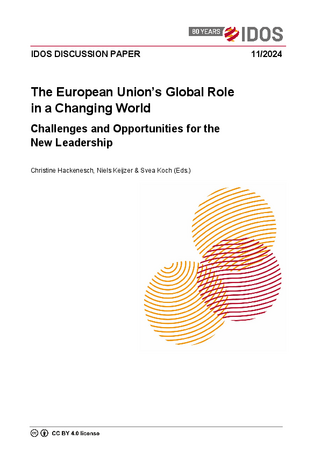
The European Union and the United Nations: exploring new opportunities in times of fiscal pressure
Haug, SebastianMitarbeiter sonstige (2024)
in: Christine Hackenesch / Niels Keijzer / Svea Koch (eds.), The European Union’s global role in a changing world: challenges and opportunities for the new leadership, Bonn: German Institute of Development and Sustainability (IDOS), 62-65
DOI: https://doi.org/10.23661/idp11.2024.14
Open access
The United Nations (UN) system is the world’s foremost set of multilateral organisations with quasi-global membership, and the European Union (EU) has long been a staunch supporter of the United Nations. EU support comes through both words and deeds. EU institutions and representatives regularly speak out in favour of strengthening the United Nations as the multilateral core of world politics. In addition, the EU also acts as a coordinator for its 27 member states in UN negotiations, for instance those on General Assembly resolutions. Given the fact that some of the UN system’s most important donors – including Germany, the Netherlands and France (UN-CEB, 2024) – belong to the EU, this coordination function plays a key role in UN negotiations. Compared to most other member states, many EU countries – particularly the larger ones – can count on a substantive workforce in their New York-based missions to prepare and accompany UN debates. This puts the EU in an advantageous position when it comes to co-shaping what are often complex negotiation processes.

